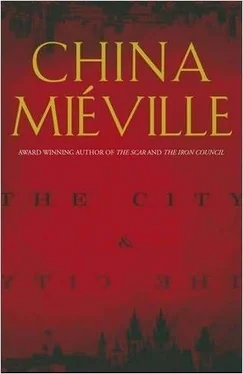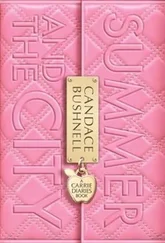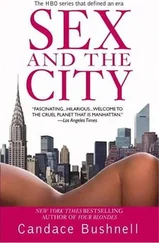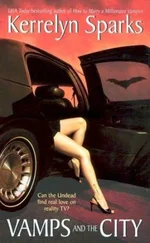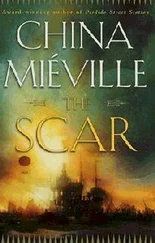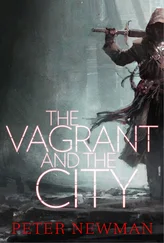We repeated this at other gatherings, and afterwards each time we waited several minutes in our car, far enough away that a troubled member of any of the groups might excuse himself or herself and come find us, tell us some dissident scrap that might push us by whatever byways towards the details and family of our dead woman. No one did. I gave my card to many people and wrote down in my notebook the names and descriptions of those few that Corwi told me mattered.
“That’s pretty much everyone I used to know,” she said. Some of the men and women had recognised her, but it had not seemed to make much difference to how she was received. When we agreed that we had finished it was after two in the morning. The half-moon was washed out: after a last intervention we had come to a stop, were standing in a street depleted of even its latest-night frequenters.
“She’s still a question mark.” Corwi was surprised.
“I’ll arrange to have the posters put around the area.”
“Really, boss? Commissar’ll go for that?” We spoke quietly. I wove my fingers into the wire mesh of a fence around a lot filled only with concrete and scrub.
“Yeah,” I said. “He’ll roll over. It’s not that much.”
“It’s a few uniforms for a few hours, and he’s not going to … not for a …”
“We have to shoot for an ID. Fuck it, I’ll put them up myself.” I would arrange for them to be sent out to each of the city’s divisions. When we turned up a name, if Fulana’s story was as we had tentatively intuited, what few resources we had would vanish. We were milking leeway that would eradicate itself.
“You’re the boss, boss.”
“Not really, but I’m the boss of this for a little bit.”
“Shall we?” She indicated the car.
“I’ll walk it to a tram.”
“Serious? Come on, you’ll be hours.” But I waved her off. I walked away to the sounds only of my own steps and some frenzied backstreet dog, towards where the grey glare of our lamps was effaced and I was lit by foreign orange light.
SHUKMAN WAS MORE SUBDUED in his lab than out in the world. I had been on the phone to Yaszek asking for the video of the kids’ interrogation, the previous day, when Shukman contacted me and told me to come. It was cold, of course, and fuggy with chemicals. There was as much dark and many-stained wood as steel in the huge windowless room. There were notice boards on the walls, from each of which grew thickets of papers.
Dirt seemed to lurk in the room’s corners, on the edges of its workstations: but once I had run a finger along a grubby-looking groove by the raised spill-stopper, and it had come back clean. The stains were old. Shukman stood at the head of a steel dissecting table on which, covered with a slightly stained sheet, the contours of her face plain, was our Fulana, staring as we discussed her.
I looked at Hamzinic. He was only slightly older, I suspected, than the dead woman. He stood respectfully close by, his hands folded. By chance or not he stood next to a pinboard to which was attached among the postcards and memos a small gaudy shahada . Hamd Hamzinic was what the murderers of Avid Avid would also term an ébru . These days the term was used mainly by the old-fashioned, the racist, or in a turnabout provocation by the epithet’s targets: one of the best-known Besź hip-hop groups was named Ébru WA.
Technically of course the word was ludicrously inexact for at least half of those to whom it was applied. But for at least two hundred years, since refugees from the Balkans had come hunting sanctuary, quickly expanding the city’s Muslim population, ébru , the antique Besź word for “Jew,” had been press-ganged into service to include the new immigrants, become a collective term for both populations. It was in Besźel’s previously Jewish ghettos that the Muslim newcomers settled.
Even before the refugees’ arrival, indigents of the two minority communities in Besźel had traditionally allied, with jocularity or fear, depending on the politics at the time. Few citizens realise that our tradition of jokes about the foolishness of the middle child derives from a centuries-old humourous dialogue between Besźel’s head rabbi and its chief imam about the intemperance of the Besźel Orthodox Church. It had, they agreed, neither the wisdom of the oldest Abrahamic faith, nor the vigour of its youngest.
A common form of establishment, for much of Besźel’s history, had been the DöplirCaffé: one Muslim and one Jewish coffeehouse, rented side by side, each with its own counter and kitchen, halal and kosher, sharing a single name, sign, and sprawl of tables, the dividing wall removed. Mixed groups would come, greet the two proprietors, sit together, separating on communitarian lines only long enough to order their permitted food from the relevant side, or ostentatiously from either and both in the case of freethinkers. Whether the DöplirCaffé was one establishment or two depended on who was asking: to a property tax collector, it was always one.
The Besźel ghetto was only architecture now, not formal political boundary, tumbledown old houses with newly gentrified chic, clustered between very different foreign alter spaces. Still, that was just the city; it wasn’t an allegory, and Hamd Hamzinic would have faced unpleasantnesses in his studies. I thought slightly better of Shukman: a man of his age and temperament, I was perhaps surprised that Hamzinic felt free to display his statement of faith.
Shukman did not uncover Fulana. She lay between us. They had done something so she lay as if at rest.
“I’ve emailed you the report,” Shukman said. “Twenty-four-, –five-year-old woman. Decent overall health, apart from being dead. Time of death, midnightish the night before last, give or take, of course. Cause of death, puncture wounds to the chest. Four in total, of which one pierced her heart. Some spike or stiletto or something, not a blade. She also has a nasty head wound, and a lot of odd abrasions.” I looked up. “Some under her hair. She was whacked round the side of the head.” He swung his arm in slow-motion mimicry. “Hit her on the left of her skull. I’d say it knocked her out, or at least down and groggy, then the stab wounds were the coup de grace.”
“What was she hit with? In the head?”
“Something heavy and blunt. Could be a fist, if it was big, I suppose, but I seriously doubt it.” He tugged the corner of the sheet away, expertly uncovered the side of her head. The skin was the ugly colour of a dead bruise. “And voilà.” He motioned me closer to her skinheaded scalp.
I got near the smell of preservative. In among the brunette stubble were several little scabbed puncture marks.
“What are they?”
“I don’t know,” he said. “They’re not deep. Something she landed on, I think.” The abrasions were about the size of pencil-points pushed into skin. They covered an area roughly my hand-breadth, irregularly breaking the surface. In places there were lines of them a few millimetres long, deeper in the centre than at either end, where they disappeared.
“Signs of intercourse?”
“Not recently. So if she’s a working girl maybe it was a refusal to do something that got her in this mess.” I nodded. He waited. “We’ve washed her down now,” he said eventually. “But she was covered in dirt, dust, grass stains, all the stuff you’d expect from where she was lying. And rust.”
“Rust?”
“All over. Lots of abrasions, cuts, scrapes, postmortem mostly, and lots of rust.”
I nodded again. I frowned.
“Defensive wounds?”
“No. Came quick and unexpected, or her back was turned. There’s a bunch more scrapes and whatnot on the body.” Shukman pointed to tear marks on her skin. “Consistent with dragging her along. The wear and tear of murder.”
Читать дальше
